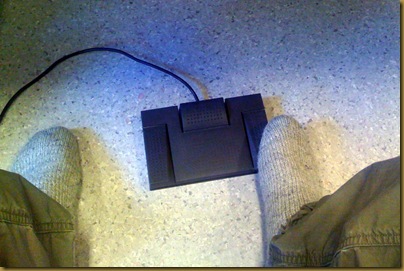 One of the weekly assignments I have for the online class I am teaching, Principles and Practices of Online Course Creation and Instructional Design (#PPOCCID), is for my students to have a weekly blog post about something to do with the content of our class. I make the assignment rather broad, as I know that learning can take place at odd times and in unlikely ways, so I want my learners to feel flexibility in what they write about and explore.
One of the weekly assignments I have for the online class I am teaching, Principles and Practices of Online Course Creation and Instructional Design (#PPOCCID), is for my students to have a weekly blog post about something to do with the content of our class. I make the assignment rather broad, as I know that learning can take place at odd times and in unlikely ways, so I want my learners to feel flexibility in what they write about and explore.
With this in mind, I wanted to follow my own assignment and discuss something I found interesting in one of the readings from this past week’s class (where I ran out of time and did not discuss), Tools for Online Engagement and Communication by Richard S. Lavin, Paul A. Beaufait, and Joseph Tomei. In this chapter, the authors do an excellent overview of a number of current web-based technologies that are useful to help people develop their online identities, communicate their stories with peers, and begin to engage in online community.
With the focus on blogs, wikis, and technologies to assist with digital storytelling, I am reminded of how I started blogging several years ago to explore my own thinking, and still use it to help me process my work, usually with the benefit of getting additional feedback that in turns helps me move my thinking forward.
With this in mind, I like how the authors of this chapter (who do one of the better introductions to blogs and wikis) begin it:
“In the beginner’s mind there are many possibilities, but in the expert’s there are
few.” (Suzuki, 2006, p. 21)
In Zen Buddhism, there is a notion of beginner’s mind (shoshin in Japanese), in which a person seeking enlightenment is asked to look at things as they are, without preconceived notions. A goal of looking at things from learners’ perspectives is to see things the way new students do, and to anticipate problems and bottlenecks that they might face, a task that takes on added significance in light of the relative newness of online education. Online education acts as a universal solvent, dissolving many of the notions and axioms that we have taken for granted.
I have thought a lot about blogging, and have engaged in it for so long that my perceptions about it may be different from how those new to the concept of blogging may perceive it. I have seen learners grow in their sophistication, professionalism, academic prowess, and even reflective practice, and am so look forward to seeing how my current learners experience this.


